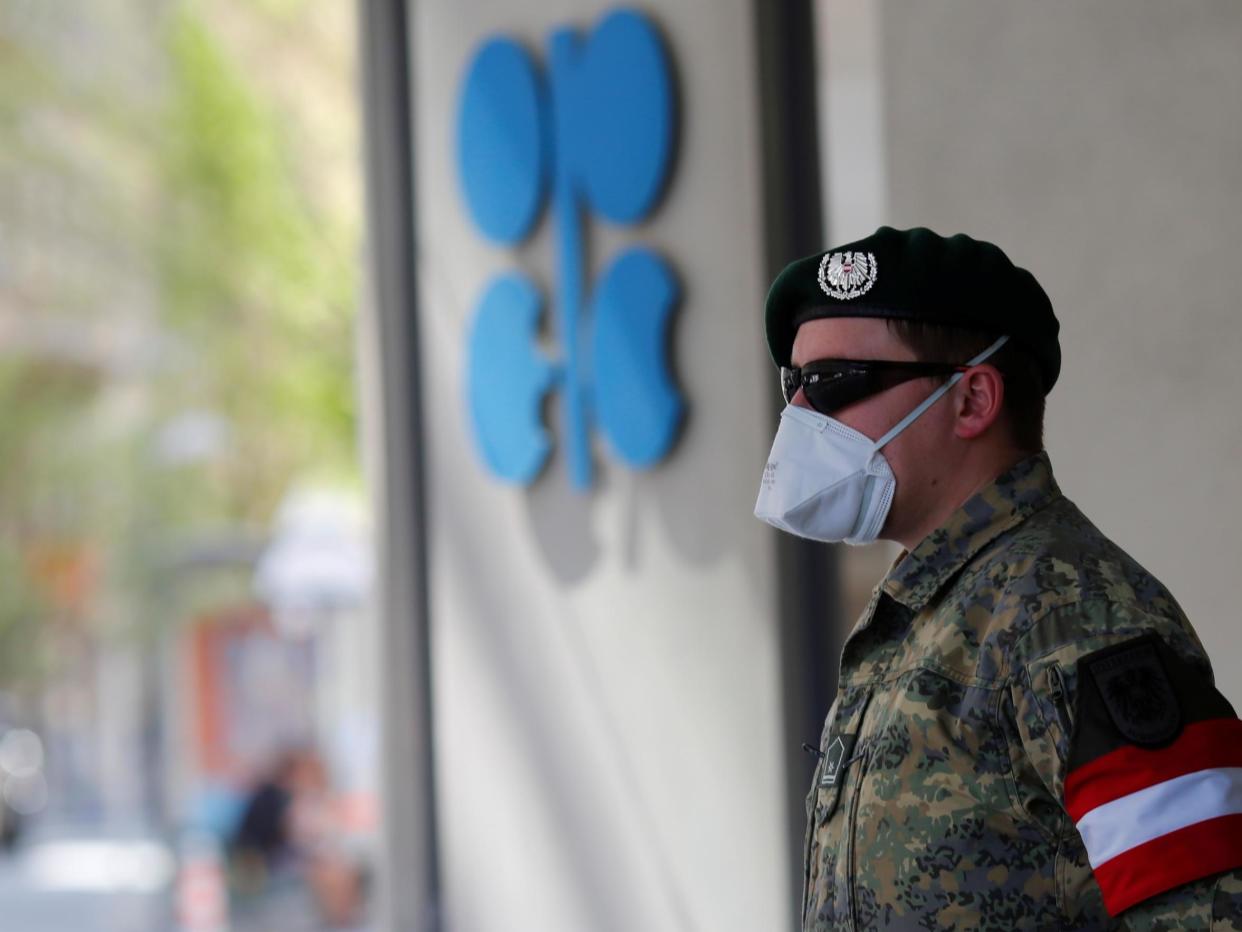Oil producing nations agree historic cut in face of coronavirus crisis

The world’s largest oil producing countries have brokered a historic deal to potentially cut production by 10 million barrels a day due to the dwindling demand triggered by the coronavirus — however the measures have done little to quell concern in the markets as prices continue to fall.
In a meeting of the Organisation of the Petroleum Exporting Countries (OPEC), which was also attended by influential non-OPEC members, nations agreed in principle to slash production by 10 million barrels a day in May and June — the largest cut ever put forward by the organisation.
However despite the proposed step being designed to preserve the value of oil, which has been in free-fall due to dwindling business in aerospace and heavy industry triggered by the coronavirus pandemic, as well as an ongoing price war between Russia and Saudi Arabia, the value of the commodity continued to fall amid concerns the cut did not go far enough.
Worldwide oil demand has dropped by roughly 30 per cent, or about 30 million barrels per day, since the global pandemic took hold.
“What this was is a case of spectacular disappointment,” Dave Ernsberger, global head of commodities pricing at S&P Global Platts, said.
“In the oil market today, 20 million barrels of oil demand just got blown off the face of the Earth by the coronavirus. It’s gone, and they can’t even begin to paper over that with what they agreed on today.”
The measure signals a softening in relations between the two major players in the blocs that make up OPEC+, Saudi Arabia, the largest producer among the OPEC nations, and Russia, seen as the largest of the non-OPEC member grouping that maintain influence over the organisation.
Both had been locked in a price war since early March that saw US prices fall by 34 per cent to a four-year low. The renewed discussions among members of OPEC+ began after Donald Trump pressured Riyadh and Moscow to make a deal in a series of phone calls.
However, despite potential impact on US shale oil businesses, an industry currently facing wide-reaching redundancies, a senior Trump administration official said the US welcomed the pledge ahead of the G20 summit.
“These commitments would send an important signal that all major oil producing states will respond in an orderly manner to market realities caused by the coronavirus pandemic,” the official said.
Despite pressure from OPEC+ nations for Washington to join in any reduction in production, the US is limited in its ability to call for nationwide cuts similar to those in Russia and Saudi Arabia due to antitrust laws. Mr Trump in turn has said the reduction is happening “naturally”.
While any coordinated response by companies would ordinarily be illegal, the call for action being led by the federal government could give businesses legal cover to reduce production in line with one another — according to Barbara Sicalides, an antitrust expert at Pepper Hamilton LLP.
Read more
Opec’s discussions over coronavirus are vital for the global economy

 Yahoo News
Yahoo News 
